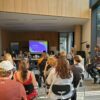Inquiring
Searching from the subaltern
The notion of “subaltern knowledge”, developed by Gayatri Spivak within what is called Postcolonial Thinking, broadens significantly the boundaries of knowledge towards narrative, corporeal, experiential, sensed, popular, community-based, traditional, non-legitimized forms.How is this knowledge “ produced”, “accessed” or “activated” in a respectful and sensitive way?
The ability to assess, use, produce knowledge, from academic to subaltern, is a core resource to tackle the contemporary societal transitions, notably in international cultural environments. This thread displays material that present ways of constructing, sharing, and using a plurality of knowledge for the pursuit of an intelligent and sensitive professional life in our contemporary “knowledge societies”. It includes resources on artistic research whose methods are based on sensual, intuitive, interdisciplinary, open-ended and experimental practices of art making, which are methods usually ignored in academic teaching.
Further readings
- Dewey John, Logic. The Theory of Inquiry, 1938, Link
- Meudec Marie, References on Decolonizing Knowledge / Methodologies (De)Coloniality Post/De-Colonial Perspectives. Références à propos de Décolonisation de la connaissance / des méthodologies (Dé)Colonialité Perspectives Post/Dé-Coloniales, Link
- Tuhiwai Smith Linda, Decolonizing Methodologies Research and Indigenous Peoples, Zed Books, 2012
Keywords
Contributions
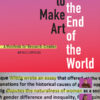
How to make Art at the End of the World: A Manifesto for Research-Creation
Keywords: diversifying learning environments, neoliberal university, research-creation, situatedness
„[..] to do research – of any kind – is not simply to ask questions ; it is to let our curiosities drive us and allow them to ethically blind us ; it is to tell stories and to pay attention not only to which stories we are telling and how we are telling them, but how they, through their very forms are telling us.“ p. 24

CRAFTpedia
Keywords: ancestral knowledge, artisanal knowledge, cultural heritage
the craftpedia presents very diverse crafts and practices, from more popular ones to very specific, place-based or endangered ones.
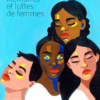
Mémoires et luttes de femmes (Memories and Struggles of Women)
Keywords: creative inquiry, emotion, non-mixity, ordinary experiences, sharing experiences, testimonies and memory
A method to redefine references in terms of struggles, pride, resistance, resilience, and women’s capacities, beyond the great figures and stories usually put forward in history
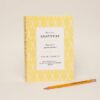
How to be a craftivist. The art of gentle protest
Keywords: counterexample, decontextualization
Corbett’s craftivism is primarily a counterexample for us. The book describes “craftivism” as a rather professional, strategical and efficient way of doing activist campaigns, for people who are able to identify and collaborate with cultural institutions, enterprises, political representatives, etc. – or for people who want to engage as a hobby.
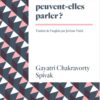
Can the Subaltern Speak?
Keywords: case study, failure, inquiry, narrative, positionality, subaltern
“Can the subaltern speak? What must the elite do to watch out for the continuing construction of the subaltern?” (p. 294).
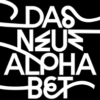
The New Alphabet
Keywords: artistic research, digitalization, global thinking, knowledge production, languages, learning practices, situated knowledge
The New Alphabet is intended both as a diagnosis and a provocation: vernacular, opaque, or marginalized ways of knowing are increasingly subsumed into abstract universalizing structures. What strategies of resistance against such processes of forced alphabetization exist or could be developed? And which role do artistic methods of appropriation and creolization play in this context?”
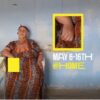
Freiburger Filmforum
Keywords: decoloniality, ethnology, eurocentrism, transcultural cinema
The film festival is particularly interested in paying attention to groups, cultures and milieus that are often overviewed by the ethnocentric gaze of many European film festivals.
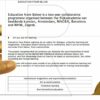
Education from below
Keywords: collective learning and imagination, embodied knowledge, meaning making in museums, multiplicity of definition
The project recognises that art practices can dislocate the usual hierarchies of what should or should not be learned and that knowledge does not have to be based on accumulation, but rather on sharing and mutual learning.
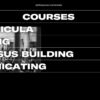
Anthropocene Curriculum
Keywords: anthropocene, experimental co-learning, international project, knowledge production, knowledge sharing
What should a body of “earthbound” knowledge contain that traverses from the global to the local and back?

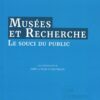
Le souci du public (Taking care of audiences)
Keywords: audiences, care, museum, reflexivity
Taking care of the audiences" deconstructs the meaning of care in the cultural sector and looks at the diversity of practices underpinned by definitions of "audiences" that can diverge sharply (is the audience a target, a state, a regime of discourse, a condition?)
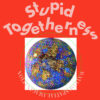
Stupid Togetherness
Keywords: collaborative practice, commonness, embodied knowledge, playful urban exploration, psychogeography, public space, subversion, urban pedagogy
The project Stupid Togetherness seeks to question existing spatial mechanisms and explore the possibilities for collaborative engagement within the urban spaces.

